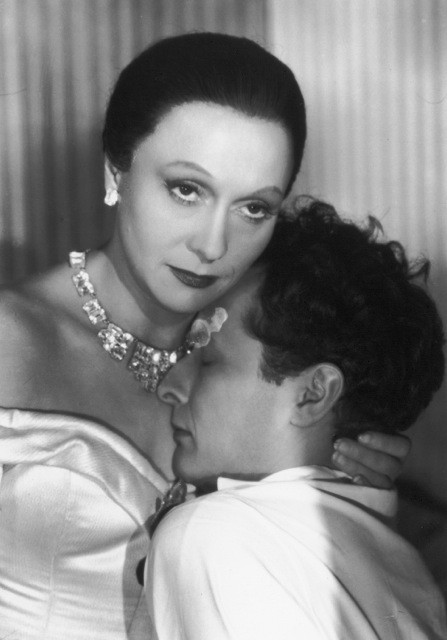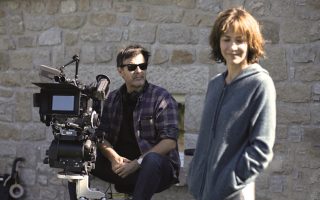Les Enfants du Paradis at the Cinémathèque

The Cinémathèque Française is currently celebrating one of the best-known French films of all time with a fascinating exhibit. Marcel Carné’s Les Enfants du Paradis is set in the Paris of the 1820s and ‘30s, on the Boulevard du Crime—a name given to the Boulevard du Temple because of its many theaters offering bloody melodramas. Peopled by colorful characters based on real French personalities including acclaimed actor Frédérick Lemaître and famous criminal Pierre Lacenaire, it tells the story of the ill-fated love between the mime Baptiste (played by Jean-Louis Barrault) and the shady actress Garance (Arletty), who shares her favors with three other men. Thanks to Carné’s brilliant direction, the film captures both the feverish atmosphere of the boulevard with its seething crowds and raucous audiences in the theater’s upper balconies, and the visual poetry of dreamlike, timeless love scenes. Jacques Prévert’s screenplay balances sparkling dialogue with genuine feeling (and gives Arletty some famous lines, including the oft-quoted “Love is simple”).
The film’s atmosphere is vividly re-created in the exhibit, with its trompe-l’oeil facade and decor. Visitors can watch many excerpts of the film as they view hundreds of original documents and artifacts from the archives of the Cinematheque and the Jerome-Seydoux-Pathé Foundation: posters, drawings, photos, costumes, props, scripts, correspondence, scale models, scenery elements, publicity materials.
The exhibit’s final section documents the making of the film, a story worthy of a film of its own. Made during the Occupation, it was plagued from the start with difficulties, from a storm that destroyed part of the vast Boulevard du Crime set in the early days of filming in Nice, to theatrical constraints imposed by the authorities (film stock was rationed; both the set designer Alexandre Trauner and composer Joseph Kosma were Jewish and had to work in secrecy; production was repeatedly delayed by wartime events). The film finally debuted in March 1945, after the liberation of Paris.
The exhibit, which runs through January 27, 2013, is a great excuse to visit Paris’s wonderful Cinèmathèque.
Cinémathèque Française, 51 rue de Bercy, 12th. Métro: Bercy. 01.71.19.33.33. Admission: €10. www.cinemathequefrancaise.fr
Share to: Facebook Twitter LinkedIn Email
Leave a reply
Your email address will not be published. Required fields are marked *



